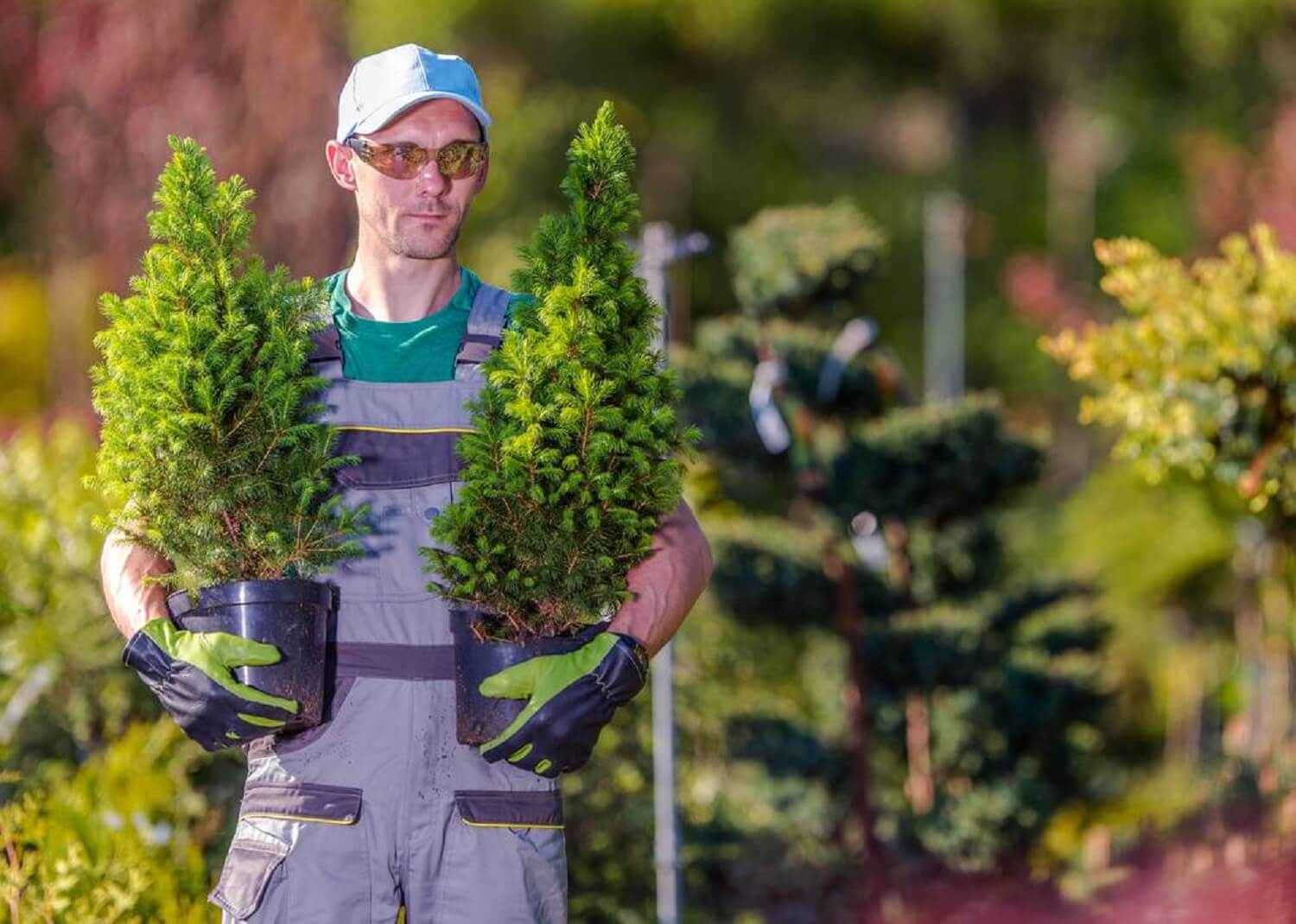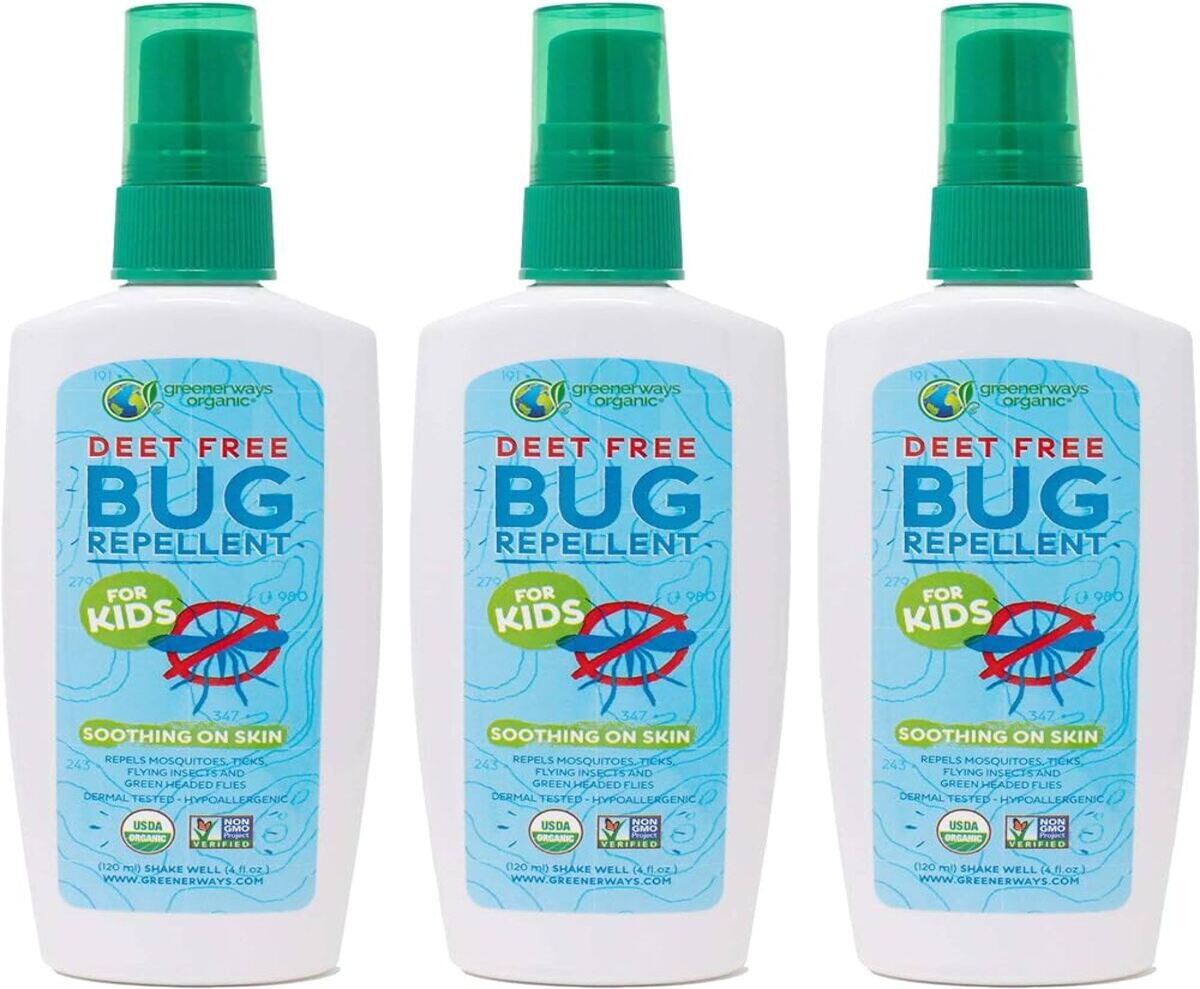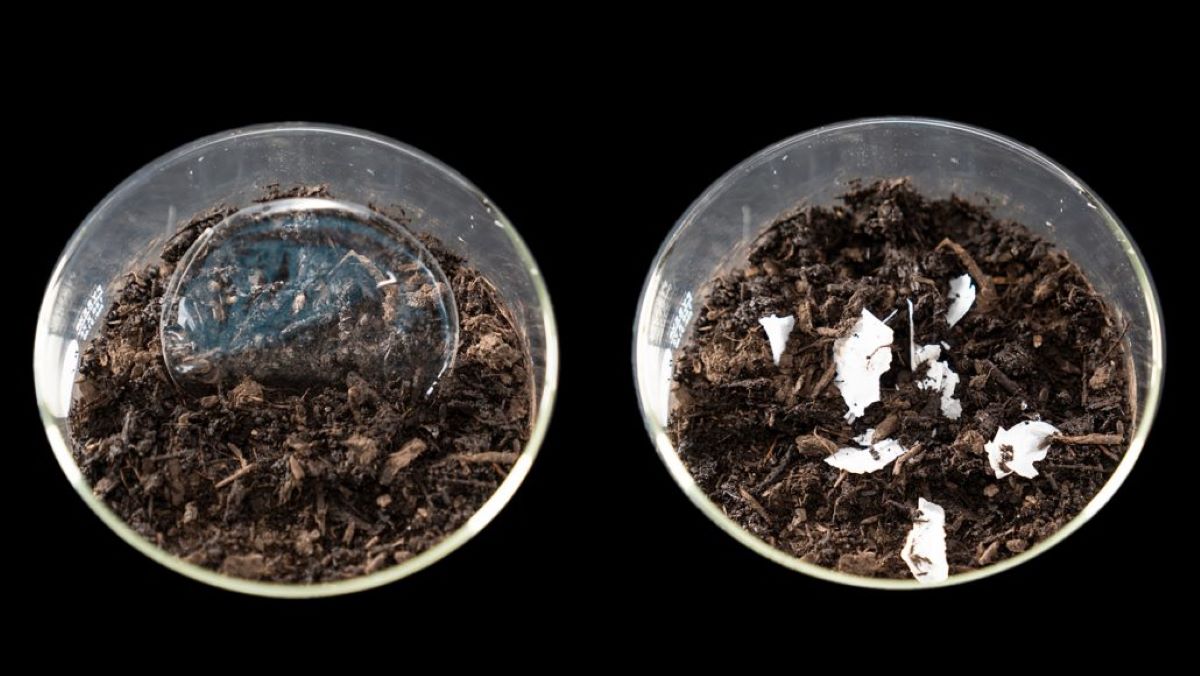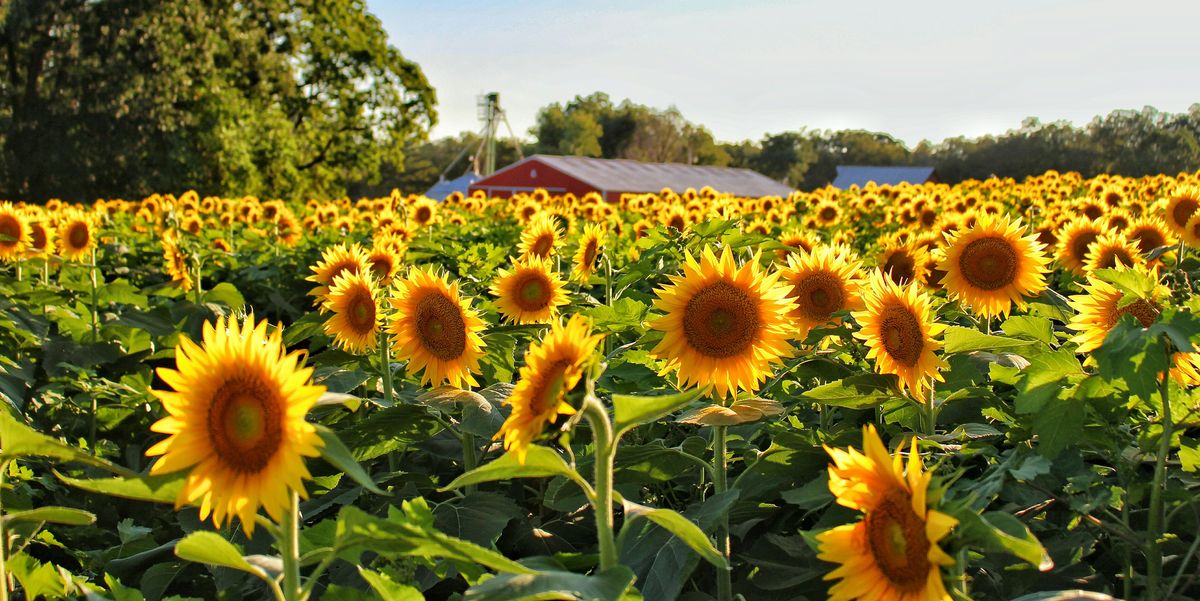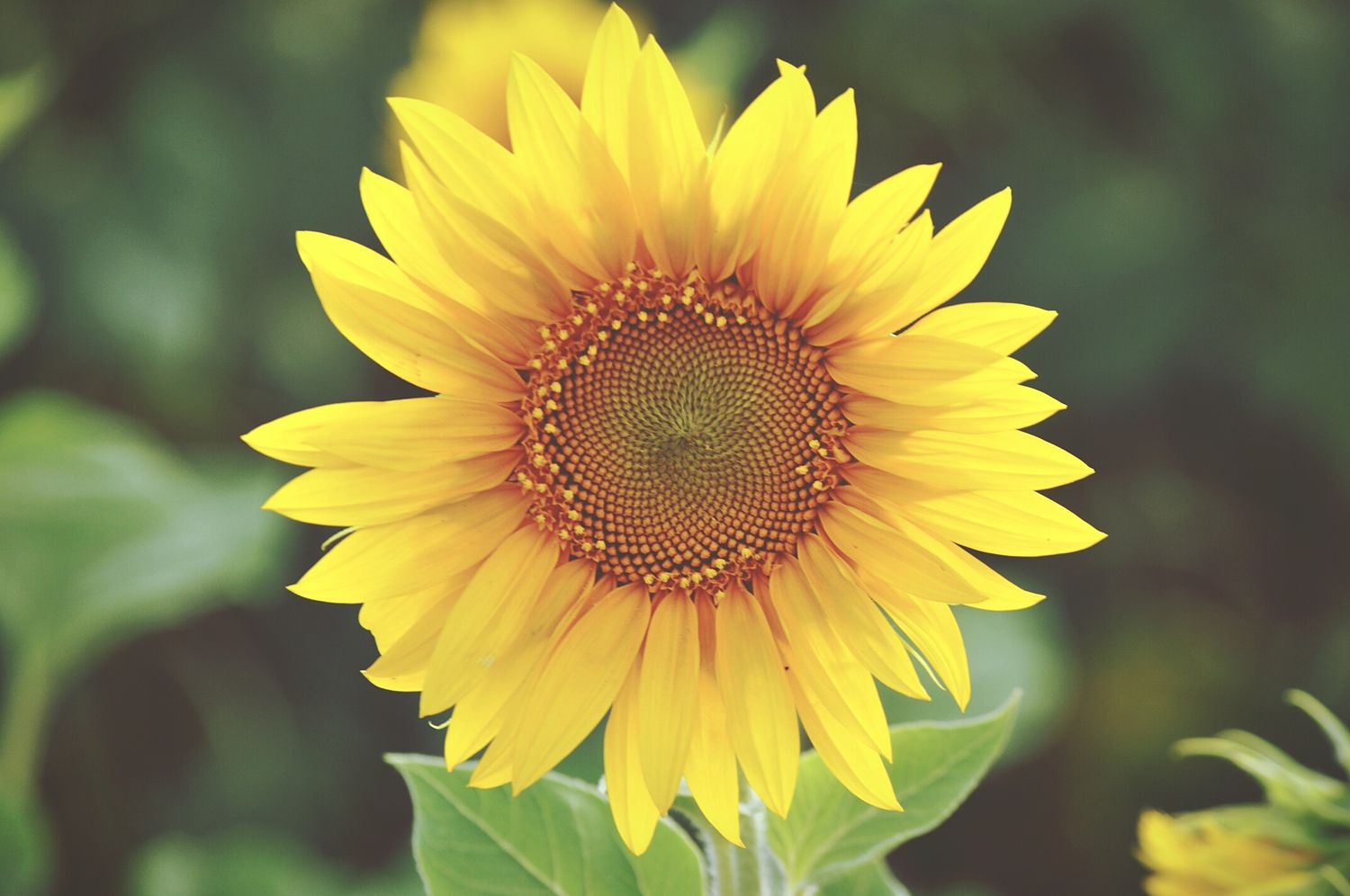Home>Gardening Tips and Tricks>Eco-Friendly Gardening>Why Peat-Free Compost
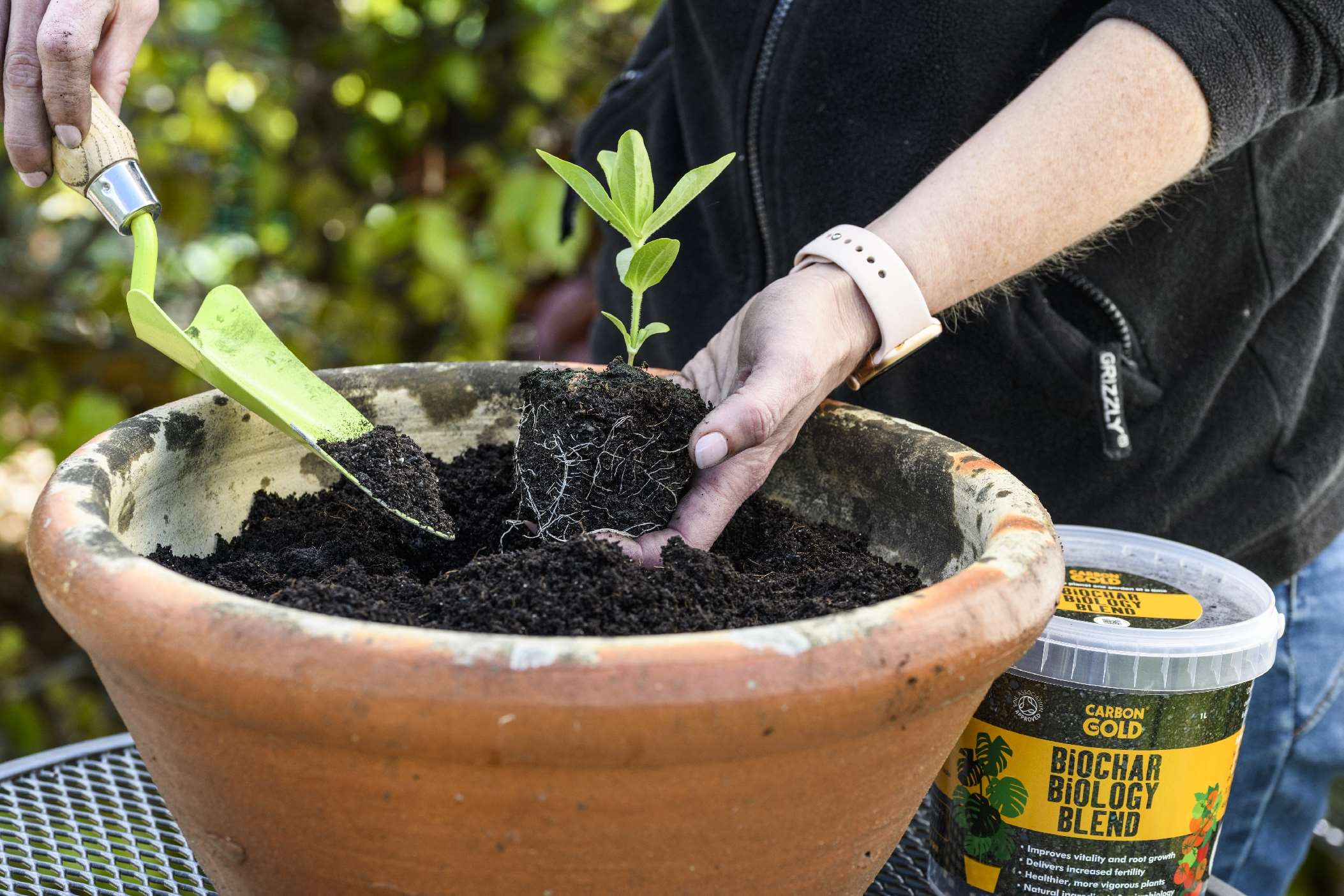

Eco-Friendly Gardening
Why Peat-Free Compost
Modified: January 22, 2024
Discover the benefits of peat-free compost and embrace eco-friendly gardening. Reduce your environmental impact while nurturing your plants with sustainable alternatives.
(Many of the links in this article redirect to a specific reviewed product. Your purchase of these products through affiliate links helps to generate commission for Chicagolandgardening.com, at no extra cost. Learn more)
Table of Contents
Introduction
Welcome to the wonderful world of eco-friendly gardening! In this era of increasing environmental awareness, more and more people are opting for sustainable practices to nurture their gardens. One important aspect of eco-friendly gardening is the use of peat-free compost. In this article, we will explore why peat-free compost is a crucial choice for environmentally conscious gardeners.
But first, let’s understand what exactly peat is. Peat is a type of organic matter that accumulates over thousands of years in peatlands, which are wetland ecosystems. It is formed by the partial decomposition of plants, mainly mosses, in waterlogged conditions. Peat has been traditionally used as a key ingredient in commercial compost mixes due to its ability to retain moisture and its high nutrient content.
However, the extraction of peat comes at a great cost to the environment. Peatlands play a crucial role in carbon sequestration, acting as a natural storage unit for carbon dioxide. When peatlands are drained for peat extraction, the carbon stored in the peat is released into the atmosphere as greenhouse gases, contributing to global warming.
Furthermore, peat extraction destroys the delicate ecosystem of peatlands, which are home to a diverse range of plant and animal species. These habitats provide a sanctuary for many rare and endangered species, making their conservation a priority.
Peat-free compost, on the other hand, is made from alternative materials such as coir, composted bark, and wood fiber. These materials are renewable and readily available, reducing the need for peat extraction and its associated environmental consequences.
Using peat-free compost in your garden offers numerous benefits. Firstly, it helps retain moisture in the soil, reducing the need for frequent watering. This is especially beneficial during dry spells or in regions with limited water resources, as it promotes efficient water usage.
Secondly, by choosing peat-free compost, you are supporting sustainable gardening practices. Sustainable gardening aims to minimize the impact on the environment by conserving resources, reducing waste, and promoting biodiversity. By using peat-free compost, you are actively participating in this sustainability movement.
Another compelling reason to opt for peat-free compost is the reduction of greenhouse gas emissions. As mentioned earlier, peat extraction releases significant amounts of carbon dioxide and other greenhouse gases into the atmosphere. By avoiding peat-based compost, you are contributing to the reduction of these emissions and combating climate change.
Lastly, using peat-free compost helps protect and preserve peatland habitats. By preserving these ecosystems, we are not only safeguarding the biodiversity they support, but also helping mitigate the effects of climate change. Peatlands act as natural carbon sinks, absorbing and storing large amounts of carbon dioxide.
Now that you understand the importance of peat-free compost, you may wonder about its availability and cost. Fear not! Peat-free compost is widely available at garden centers, nurseries, and online stores. It may be slightly more expensive than traditional peat-based compost, but the long-term environmental benefits far outweigh the cost difference.
So, join the growing community of eco-friendly gardeners and make the switch to peat-free compost. By doing so, you are taking a positive step towards creating a greener and more sustainable world, one garden at a time.
What is peat?
Before delving into the environmental impact of peat extraction and the benefits of peat-free compost, it is important to understand what exactly peat is. Peat is a type of organic matter that forms in wetland ecosystems called peatlands. It is primarily composed of partially decomposed plant material, particularly mosses, that have accumulated over thousands of years.
Peatlands are unique environments that play a vital role in our planet’s ecosystem. They cover around 3% of the Earth’s surface and are found in various regions, from tropical to subarctic climates. Due to their waterlogged conditions, peatlands are characterized by low oxygen levels, slowing down the decomposition process and allowing the accumulation of organic matter.
In its natural state, peat is dark brown or black and has a spongy texture. It is often referred to as “the fuel of ancient landscapes” due to its historical use as a source of energy. In fact, peat has been utilized as a fuel in many countries, particularly in regions where other energy sources are scarce.
Peat has also been extensively used in horticulture and gardening applications. Its ability to retain water makes it an ideal component for potting mixes and compost. When mixed with other organic materials, peat creates a nutrient-rich medium that helps plants thrive by providing necessary moisture and essential nutrients.
However, the demand for peat as a gardening resource has led to widespread peat extraction, which comes with significant environmental consequences. These consequences will be explored in more detail in the next section.
It is important to note that not all peatlands are the same. There are two main types of peatlands: bogs and fens. Bogs are typically characterized by an acidic and nutrient-poor environment, while fens have a higher nutrient content and are more alkaline. Both types support unique plant and animal species that are specially adapted to these specific conditions.
Peatlands also act as important carbon sinks, meaning they store large amounts of carbon dioxide and other greenhouse gases. This ability to sequester carbon makes peatlands indispensable in the fight against climate change. By preserving and protecting peatlands, we can contribute to global efforts to reduce greenhouse gas emissions and minimize the impact of climate change on our planet.
Now that we have a better understanding of what peat is and its significance, it is time to explore the environmental impact of peat extraction and why peat-free compost is a more sustainable alternative.
Environmental Impact of Peat Extraction
The extraction of peat, often referred to as peat mining or peat harvesting, has profound environmental consequences. The process involves draining peatlands and removing the layers of peat for commercial use. While peat extraction has been practiced for centuries, the scale of modern extraction methods and its impact on the environment have raised concerns among environmentalists and conservationists.
One of the major environmental impacts of peat extraction is the release of greenhouse gases into the atmosphere. Peatlands store vast amounts of carbon dioxide and other greenhouse gases, acting as natural carbon sinks. When peatlands are drained, oxygen enters and initiates the decomposition process of the peat. This decomposition releases carbon dioxide, methane, and nitrous oxide, which are potent greenhouse gases that contribute to climate change.
The carbon dioxide emissions resulting from peat extraction are particularly alarming. Peatlands store twice as much carbon as all the world’s forests combined. When peatlands are drained and the carbon-rich peat is exposed to the air, the carbon is released as carbon dioxide. This not only diminishes the carbon storage capacity of peatlands but also adds to the concentration of greenhouse gases in the atmosphere. Considering the crucial role of peatlands in mitigating climate change, the loss of these carbon sinks has significant implications for our planet’s future.
In addition to greenhouse gas emissions, peat extraction also impacts the hydrological cycle. Peatlands act as natural sponges, soaking up rainfall and slowly releasing it over time. By draining peatlands, the water storage capacity is reduced, leading to increased runoff and the risk of flooding in surrounding areas. Furthermore, the altered hydrological conditions can harm the unique plants and wildlife that depend on these wetland ecosystems for their survival.
Peat extraction also poses a threat to the biodiversity of peatland habitats. These ecosystems are home to a wide range of plant species, including rare and specialized mosses, heathers, and carnivorous plants. They also provide habitats for various animal species, such as birds, butterflies, and amphibians. The destruction of peatlands for peat extraction disrupts these delicate ecosystems, leading to the loss of plant and animal species and their habitats.
Moreover, the extraction process itself contributes to habitat destruction. Machinery and vehicles used for peat extraction can cause physical damage to surrounding areas, further degrading the natural environment. The extraction activities can also lead to soil erosion and the loss of topsoil, which is essential for healthy plant growth.
Given the severe environmental consequences of peat extraction, it is crucial to explore sustainable alternatives such as peat-free compost. This alternative provides numerous benefits not only for the environment but also for your garden. We will explore these benefits in the next section.
Benefits of Peat-Free Compost
With the growing awareness of the environmental impact of peat extraction, gardeners and landscapers are turning to peat-free compost as a more sustainable alternative. Peat-free compost is made from renewable materials such as coir, composted bark, and wood fiber. Making the switch to peat-free compost offers several benefits for both your garden and the environment.
One of the major benefits of using peat-free compost is improved water retention. Peat-free compost has excellent water-holding capacity, allowing it to retain moisture in the soil for longer periods. This is especially beneficial during dry spells or in regions with limited water resources. By using peat-free compost, you can reduce the need for frequent watering, conserving water and promoting efficient water usage.
In addition to water retention, peat-free compost supports sustainable gardening practices. Sustainable gardening aims to minimize the environmental impact by conserving resources, reducing waste, and promoting biodiversity. By choosing peat-free compost, you are actively participating in this movement. It helps reduce the demand for peat extraction, which contributes to the preservation of peatlands and their crucial role in carbon sequestration.
Another significant advantage of peat-free compost is the reduction of greenhouse gas emissions. As mentioned earlier, peat extraction releases large amounts of carbon dioxide and other greenhouse gases into the atmosphere. By using peat-free compost, you are contributing to the reduction of these emissions, as the production of peat-free compost has a significantly lower carbon footprint compared to peat-based compost.
Furthermore, using peat-free compost helps protect and preserve peatland habitats. Peatlands provide a unique ecological niche for a variety of plant and animal species. Many rare and endangered species rely on these habitats for their survival. By avoiding peat-based compost and supporting peatland conservation, you are playing a part in safeguarding these precious ecosystems.
Peat-free compost is readily available at garden centers, nurseries, and online stores. While it may be slightly more expensive than traditional peat-based compost, the long-term environmental benefits far outweigh the cost difference. Additionally, by choosing peat-free compost, you are supporting a market shift towards sustainable gardening practices and sending a message to suppliers and manufacturers about the demand for environmentally friendly alternatives.
In summary, using peat-free compost offers significant benefits for your garden and the environment. It improves water retention, supports sustainable gardening practices, reduces greenhouse gas emissions, and protects peatland habitats. Making the switch to peat-free compost is a small yet impactful step towards creating a more sustainable and greener future for our planet.
Improved Water Retention
One of the key benefits of using peat-free compost in your gardening practices is the improved water retention it provides. Peat-free compost has excellent water-holding capacity, allowing it to retain moisture in the soil for longer periods. This is especially advantageous during dry spells or in regions with limited water resources.
When you incorporate peat-free compost into your soil, it acts like a sponge, absorbing and holding onto water. This allows the plant roots to access the moisture they need, even when rainfall is scarce. As a result, you can reduce the frequency of watering, conserve water, and promote efficient water usage in your garden.
The improved water retention of peat-free compost is beneficial for various reasons. Firstly, it helps ensure consistent moisture levels in the soil, which is crucial for plant health. Plants draw water through their roots to carry out essential functions such as photosynthesis and nutrient uptake. By maintaining adequate moisture levels in the soil, you provide a favorable environment for plants to thrive.
Secondly, improved water retention reduces the risk of water stress for your plants. During periods of high temperatures or drought, plants can suffer from water stress, leading to wilting, stunted growth, and even death. By incorporating peat-free compost, you create a buffer against water stress, as the compost holds onto moisture and releases it slowly to the roots as needed.
In addition to benefiting your plants, improved water retention also has a positive environmental impact. By reducing the need for frequent watering, you can conserve water, an increasingly precious resource. This is particularly important in regions facing water scarcity or where water conservation is a priority. Conserving water in your garden not only reduces the strain on water supplies but also supports sustainable practices and responsible resource management.
Furthermore, by using peat-free compost and enhancing water retention, you can minimize runoff and water wastage. When soil lacks sufficient organic matter or has a compacted structure, water tends to run off the surface rather than being absorbed. This not only wastes water but also carries away valuable nutrients from the soil. Peat-free compost, with its ability to retain water, helps mitigate runoff by allowing the soil to absorb and retain moisture, reducing water wastage and nutrient loss.
Overall, incorporating peat-free compost into your garden improves water retention, benefiting both your plants and the environment. It helps maintain consistent moisture levels, reduces the risk of water stress, and conserves water resources. By promoting efficient water usage and minimizing runoff, peat-free compost supports sustainable gardening practices and demonstrates your commitment to environmental stewardship.
Sustainable Gardening Practices
When it comes to gardening, adopting sustainable practices is not only beneficial for the environment but also contributes to the long-term health and productivity of your garden. By choosing peat-free compost, you are actively supporting sustainable gardening practices that minimize the impact on the environment and promote biodiversity.
One key aspect of sustainable gardening is reducing the use of non-renewable resources. Peat extraction for gardening purposes contributes to the depletion of peatlands, which are non-renewable resources that take thousands of years to form. By opting for peat-free compost, which is made from renewable materials such as coir, composted bark, and wood fiber, you are reducing your reliance on non-renewable resources and promoting the conservation of peatlands.
Sustainable gardening also places emphasis on reducing waste. Peat-free compost is often produced from recycled organic materials, such as bark and wood waste from the timber industry, or coconut coir which is a by-product of coconut processing. By using peat-free compost, you are supporting the recycling and repurposing of organic waste, diverting it from landfills and reducing the overall waste footprint.
In addition, peat-free compost promotes biodiversity in your garden. Peatlands are unique ecosystems that support a wide range of plant and animal species, including rare and endangered ones. By choosing peat-free compost and avoiding peat extraction, you are actively contributing to the preservation of peatland habitats and the protection of the biodiversity they support. This, in turn, helps create a balanced and resilient ecosystem in your garden, attracting beneficial insects and wildlife while reducing the reliance on chemical pesticides and fertilizers.
Furthermore, sustainable gardening practices focus on maintaining healthy soil ecosystems. Peat-free compost enriches the soil with organic matter and beneficial microorganisms, improving soil structure, and promoting nutrient cycling. This, in turn, leads to healthier plant growth, improved water retention, and reduced erosion. By prioritizing soil health and fertility through the use of peat-free compost, you are creating a thriving ecosystem that supports the long-term sustainability of your garden.
A key principle of sustainable gardening is minimizing the use of synthetic chemicals. Peat-free compost reduces the need for synthetic fertilizers, as it already contains natural nutrients that are released slowly over time. By avoiding the use of synthetic chemicals, you reduce the risk of water pollution and harm to beneficial organisms, such as pollinators and soil-dwelling organisms. This creates a healthier and more ecologically balanced garden environment.
Incorporating peat-free compost into your gardening practices not only aligns with sustainable principles but also sets an example for others to follow. By spreading awareness about the benefits of peat-free compost and sharing your sustainable gardening journey, you can inspire others to make more environmentally conscious choices in their own gardens.
In summary, embracing sustainable gardening practices and opting for peat-free compost supports resource conservation, waste reduction, biodiversity preservation, healthy soil ecosystems, and reduced chemical use. By implementing these practices in your garden, you are contributing to a more sustainable future and creating a nurturing environment for both plants and wildlife.
Reduction of Greenhouse Gas Emissions
One of the significant benefits of using peat-free compost in your gardening practices is the reduction of greenhouse gas emissions. Greenhouse gases, such as carbon dioxide and methane, are major contributors to climate change. By choosing peat-free compost over peat-based compost, you can play a part in reducing these emissions and mitigating the impact of climate change.
As mentioned earlier, peat extraction releases large amounts of carbon dioxide and other greenhouse gases into the atmosphere. Peatlands, which serve as natural carbon sinks, store vast amounts of carbon. When peatlands are drained for peat extraction, the carbon-rich peat is exposed to oxygen, leading to the release of carbon dioxide. This not only diminishes the carbon storage capacity of peatlands but also contributes to the concentration of greenhouse gases in the atmosphere.
By using peat-free compost, you are actively reducing the demand for peat extraction. This, in turn, helps preserve the carbon storage capacity of peatlands and prevents the release of additional greenhouse gases into the atmosphere. Peat-free compost is made from renewable and sustainable materials, such as coir, composted bark, and wood fiber, which have a lower carbon footprint compared to peat.
Another factor contributing to the reduction of greenhouse gas emissions is the manufacturing process of peat-free compost. Producing peat-free compost requires fewer energy-intensive processes compared to the extraction and processing of peat. This results in lower carbon emissions during the production and transportation of peat-free compost, further contributing to the reduction of greenhouse gas emissions.
Additionally, peat-free compost promotes the use of organic materials and encourages natural nutrient cycling in the soil. By incorporating organic matter into the soil through the use of peat-free compost, you create an environment that supports beneficial microorganisms and enhances natural nutrient availability. This reduces the reliance on synthetic fertilizers, which are often produced using energy-intensive processes and contribute to greenhouse gas emissions during their production and application.
Moreover, the reduction of greenhouse gas emissions achieved by using peat-free compost is part of a broader approach to combat climate change. As individuals and communities all over the world take steps to reduce their carbon footprint, every small action contributes to the collective effort. By choosing peat-free compost, you are showing your commitment to sustainable practices and making a positive impact on the environment.
It is important to note that while using peat-free compost can help reduce greenhouse gas emissions, it is just one aspect of a larger strategy to combat climate change. Adopting other sustainable gardening practices, such as using native and climate-adapted plants, conserving water, and minimizing the use of synthetic chemicals, can further reduce your garden’s environmental footprint and contribute to a greener future.
In summary, by using peat-free compost, you are contributing to the reduction of greenhouse gas emissions. This includes preventing the release of carbon dioxide from peat extraction, reducing energy-intensive manufacturing processes, promoting natural nutrient cycling, and supporting sustainable gardening practices. Making the switch to peat-free compost is a tangible action you can take to combat climate change and create a more sustainable future.
Protection of Peatland Habitats
Peatlands are unique and fragile ecosystems that provide vital habitats for a diverse range of plant and animal species. By choosing peat-free compost, you are actively contributing to the protection and preservation of these valuable peatland habitats.
Peatlands are home to a variety of plant species, including specialized mosses, heathers, and carnivorous plants, that have adapted to the unique conditions of these wetland ecosystems. Many of these plant species are rare and dependent on the specific environment provided by peatlands. By avoiding peat extraction and using peat-free compost, you are helping to safeguard the habitats of these rare and specialized plants.
In addition to the unique plant species, peatlands support a wide range of animal species. Birds, butterflies, amphibians, and many other creatures rely on the diverse food sources and shelter provided by the peatland habitats. By protecting peatlands and their biodiversity, you are supporting the protection of these animal species and contributing to the overall health and balance of the ecosystem.
Peatlands also play a crucial role in carbon sequestration. They have the ability to store large amounts of carbon dioxide, acting as natural carbon sinks. When peatlands are drained for peat extraction, the stored carbon is released into the atmosphere as carbon dioxide, contributing to greenhouse gas emissions and climate change. By choosing peat-free compost, you are reducing the demand for peat extraction and helping to preserve the carbon storage capacity of peatlands.
Furthermore, the protection of peatland habitats goes beyond the individual species that rely on them. Peatlands support a complex web of ecological interactions and contribute to the overall health and resilience of ecosystems. They provide important ecosystem services such as water filtration, flood prevention, and the maintenance of water quality. By keeping peatlands intact and avoiding their destruction for peat extraction, we can ensure the continued provision of these valuable ecosystem services.
Peatlands are also important cultural and historical landscapes. They hold archaeological and historical significance in many regions, providing a glimpse into our past and the human connection to the land. By protecting peatland habitats, we preserve these valuable cultural heritage sites for future generations to appreciate and learn from.
Preserving and protecting peatland habitats requires a collective effort. By choosing peat-free compost, you are sending a message that there is a demand for environmentally friendly alternatives. This, in turn, encourages suppliers and manufacturers to shift towards more sustainable practices and reduce the impact on peatlands.
In summary, by using peat-free compost, you are actively contributing to the protection and preservation of peatland habitats. This includes the conservation of rare and specialized plant species, the support of diverse animal communities, the preservation of carbon sequestration capacity, and the maintenance of valuable ecosystem services. By making an informed choice, you are promoting the importance of peatland conservation and playing a part in creating a more sustainable future for our planet.
Availability and Cost of Peat-Free Compost
With the increasing awareness of the environmental impact of peat extraction, the demand for peat-free compost has risen. As a result, peat-free compost is now widely available at garden centers, nurseries, and online stores, making it easily accessible to gardeners who wish to make the switch to more sustainable gardening practices.
Garden centers and nurseries are excellent sources for peat-free compost. Many establishments now offer a variety of compost options, including peat-free alternatives, to cater to the growing demand from environmentally conscious gardeners. Here, you can find a range of reputable brands and products that meet your gardening needs while aligning with your commitment to sustainable practices.
In addition to physical stores, the availability of peat-free compost online has also increased. Numerous online retailers now offer a wide selection of peat-free compost, providing convenience and accessibility to those who prefer to shop from the comfort of home. Online platforms also allow you to read reviews and compare different brands and products, ensuring you find the right peat-free compost for your garden.
It is important to note that while peat-free compost is more readily available today, it may still be necessary to check with local suppliers or retailers to ensure its availability in your particular area. Some regions may have a higher demand for peat-based compost, which may limit the options for peat-free alternatives. However, with the increasing global shift towards sustainable gardening practices, the availability of peat-free compost is expected to continue to grow.
When it comes to the cost of peat-free compost, it is generally slightly higher than traditional peat-based compost due to the difference in production methods and raw materials. However, it is important to consider the long-term benefits and cost savings that come with using peat-free compost.
By utilizing peat-free compost, you are actively contributing to the preservation of peatland habitats, reducing greenhouse gas emissions, and promoting sustainable gardening practices. These long-term environmental benefits far outweigh the slightly higher upfront cost of peat-free compost. Moreover, the improved water retention and nutrient content of peat-free compost could potentially reduce the need for additional fertilizers and water, resulting in cost savings in the long run.
As the demand for peat-free compost continues to increase, economies of scale and advancements in production methods may lead to more competitive pricing in the future. Meanwhile, it is important to view the cost of peat-free compost as an investment in the health of your garden and the environment.
In summary, peat-free compost is widely available at garden centers, nurseries, and online stores, making it accessible to gardeners who wish to make sustainable choices. While it may be slightly more expensive than peat-based compost, the long-term benefits and environmental impact outweigh the cost difference. With the growing demand for sustainable gardening practices, the availability and affordability of peat-free compost are expected to improve, encouraging more gardeners to embrace eco-friendly alternatives.
Conclusion
Transitioning to eco-friendly gardening practices is more important now than ever before. By choosing peat-free compost, you are actively contributing to the conservation of peatland habitats, reducing greenhouse gas emissions, and promoting sustainable gardening practices.
Peat-free compost offers numerous benefits for your garden and the environment. It improves water retention, ensuring adequate moisture for your plants and reducing the need for frequent watering. This conserves water resources and promotes efficient water usage, especially during dry spells or in regions with limited water availability.
Furthermore, peat-free compost supports sustainable gardening practices by minimizing the use of non-renewable resources and reducing waste. By avoiding peat extraction and using recycled organic materials, you embrace a more sustainable approach to gardening that prioritizes resource conservation and waste reduction.
The reduction of greenhouse gas emissions is another significant advantage of using peat-free compost. Peat extraction releases large amounts of carbon dioxide and other greenhouse gases, contributing to climate change. By choosing peat-free alternatives, you help preserve the carbon storage capacity of peatlands and mitigate the impact of climate change.
Additionally, by opting for peat-free compost, you protect and preserve peatland habitats. These unique ecosystems support a diverse range of plants and animals, many of which are rare and specialized. By supporting peatland conservation, you contribute to the overall health and balance of the ecosystem.
Peat-free compost is widely available at garden centers, nurseries, and online stores, making it easily accessible to gardeners who wish to make sustainable choices. While it may have a slightly higher upfront cost compared to peat-based compost, the long-term environmental benefits and the potential for cost savings in the future make it a worthwhile investment.
In conclusion, embracing peat-free compost and sustainable gardening practices is a small yet impactful step towards creating a greener and more sustainable world. By using these methods, you are not only nurturing your garden but also protecting the environment and contributing to the conservation of natural habitats. Join the growing community of eco-friendly gardeners and be a part of the movement towards a more sustainable future.

